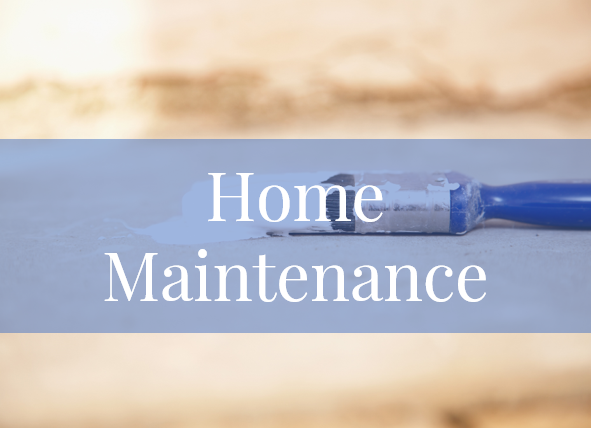How to Prepare Your Home for a Renovation Project
/Renovating your home can be an exciting yet daunting task. It requires careful planning, thorough preparation, and effective management to ensure that the project runs smoothly and meets your expectations. Whether you're planning a minor update or a major overhaul, preparing your home for a renovation project involves several key steps. This comprehensive guide will walk you through everything you need to know to get your home ready for a successful renovation.
1. Define Your Renovation Goals
Assess Your Needs and Wants
Start by clearly defining what you want to achieve with your renovation. This involves assessing your needs and wants:
Needs: Identify the essential improvements that your home requires. This could include fixing structural issues, updating outdated systems (like plumbing and electrical), or adding more functional space.
Wants: List the aesthetic and luxury features you desire. This might involve modernizing the kitchen, adding a home office, or creating an outdoor entertainment area.
Prioritize Projects
Once you have a list of needs and wants, prioritize them. Decide which projects are most important and which ones can be deferred if necessary. This will help you focus your efforts and budget on the most critical areas.
Real-Life Example: Tina and Rob’s Kitchen Transformation
Tina and Rob had big dreams for their outdated kitchen, envisioning a total overhaul with custom cabinetry, a large island, and high-end appliances. However, once we assessed the space and reviewed their budget, they realized they would need to prioritize. They opted to focus on updating the kitchen layout, improving storage, and replacing worn-out appliances. This approach kept them on budget while still achieving a functional, beautiful space that transformed the heart of their home.
Set a Budget
Determine how much you're willing to spend on your renovation project. Be realistic about your budget and include a contingency fund for unexpected expenses. A good rule of thumb is to set aside 10-20% of your total budget for unforeseen costs.
Unforeseen Structural Surprises with Karen’s Bathroom Renovation
Karen’s plan was to modernize her master bathroom with new tiles, a spacious walk-in shower, and updated fixtures. However, during demolition, we discovered water damage behind the old shower wall. The repair cost impacted her original budget, but thanks to her 15% contingency fund, she was able to cover it without cutting other desired features. Karen’s preparation made all the difference, helping her to manage the surprise without sacrificing her renovation goals.
2. Plan Your Renovation
Create a Detailed Plan
A well-thought-out plan is crucial for a successful renovation. This plan should include:
Scope of Work: Define the specific tasks that need to be completed.
Timeline: Establish a realistic timeline for the project, including start and finish dates.
Budget: Break down your budget into categories (e.g., materials, labour, permits, etc.).
Design: Develop design plans and gather inspiration from magazines, websites, or professional designers.
Hire Professionals
Depending on the scope of your project, you may need to hire various professionals, including:
Architects and Designers: For major structural changes or design overhauls.
Contractors: For general construction work.
Specialists: For specific tasks like electrical work, plumbing, or HVAC.
Obtain Necessary Permits
Check with your local building authority to determine what permits are required for your renovation. Obtaining the necessary permits ensures that your project complies with local building codes and regulations.
Mark and Jenna’s Permit Hurdle
Mark and Jenna were excited to create an open-plan living area by knocking down a wall between their kitchen and dining room. However, during planning, they learned that the wall was load-bearing, and removing it required structural changes and permits. By working with Multi Trade Building Services and our architectural technologist, as well as consulting a structural engineer, they ensured the project was safe and met local code. Although it extended their timeline, they were thrilled with the result and grateful they handled it properly.
3. Prepare Your Home
Declutter and Organize
Before the renovation begins, declutter your home to create more space and reduce the risk of damage to your belongings. This involves:
Sorting: Go through your items and decide what to keep, donate, sell, or discard.
Storing: Pack and store items that you want to keep but won't need during the renovation. Consider renting a storage unit if necessary.
Protect Your Belongings
Protect your belongings from dust, debris, and potential damage during the renovation. Steps to take include:
Covering Furniture: Use plastic sheets or drop cloths to cover furniture.
Sealing Rooms: Close off rooms that won't be affected by the renovation to prevent dust from spreading.
Removing Valuables: Take valuable items, such as jewellery and important documents, to a safe location.
The Jones Family’s Dust-Free Plan
With three young kids, the Jones family was concerned about managing dust and noise during their basement finishing project. To protect their belongings and keep the family safe, they decided to temporarily move valuables into a rented storage unit and designated the upper floor as a “construction-free zone.” They also used dust barriers and regularly cleaned the shared spaces. This preparation minimized disruption and let them continue their routines safely.
Set Up a Temporary Living Space
If the renovation will affect essential areas like the kitchen or bathroom, set up a temporary living space. This could involve:
Creating a Mini Kitchen: Set up a small area with a microwave, mini-fridge, and basic utensils. To learn how to cope without a kitchen during a renovation, read 6 Ways to Prepare Meals During a Kitchen Renovation
Setting Up a Temporary Bathroom: If possible, designate an alternative bathroom for use during the renovation.
Designating Living Areas: Identify spaces where you can comfortably live and work while the renovation is ongoing.
How Matt and Sarah Set Up Their Temporary Kitchen
When Matt and Sarah renovated their kitchen, they knew it would be out of commission for a few weeks. To keep things manageable, they set up a small “mini kitchen” in their living room, complete with a microwave, hot plate, and mini-fridge. With a few basic utensils and meal prep plans, they managed to eat well without feeling overly inconvenienced. This simple setup was invaluable, allowing them to maintain normal routines throughout the renovation.
4. Communicate with Your Contractor
Establish Clear Communication
Effective communication with your contractor is key to a successful renovation. Establish clear lines of communication from the start:
Regular Meetings: Schedule regular check-ins with your contractor to discuss progress and address any concerns.
Preferred Communication Method: Decide on the best way to communicate (e.g., phone, email, in-person meetings).
Clear Communication: Maria’s Home Office Build
Maria had specific requirements for her new home office, from built-in bookshelves to a particular shade of wall paint that matched her company branding. By discussing these preferences with us (me specifically, as I was her project manager) at the start, she avoided misunderstandings and ensured the work was completed exactly as she envisioned. I held weekly check-ins, which allowed her to make any small adjustments quickly, keeping the project on track and on budget.
Discuss Expectations
Make sure your contractor understands your expectations regarding the quality of work, timeline, and budget. This involves:
Detailed Contracts: Ensure that your contract includes detailed descriptions of the work to be done, timelines if applicable, and payment schedules. For more information on deconstructing a renovation contract, see How To Read and Interpret a Renovation Contract.
Clear Instructions: Provide clear instructions about your preferences and priorities.
5. Prepare for Disruptions
Anticipate Challenges
Renovation projects can be disruptive. Anticipate and prepare for potential challenges:
Noise and Dust: Be prepared for noise and dust. Inform your neighbours about the renovation to minimize any inconvenience to them. For more information on dealing with neighbours during a renovation, check out our blog: Getting the Neighbours Ready For Your Renovation
Limited Access: Understand that some areas of your home may be inaccessible during the renovation.
Unexpected Issues: Be ready to address unexpected issues, such as structural problems or delays in material delivery.
Plan for Pets and Children
If you have pets or children, consider their safety and comfort during the renovation:
Temporary Relocation: Consider temporarily relocating pets and children to a friend's or family member's home.
Safe Zones: Create safe zones in your home where pets and children can stay away from the construction area. Here are 10 Tips for a Pet Friendly Renovation.
6. Maintain a Clean and Safe Work Environment
Ensure Safety
Safety should be a top priority during your renovation. Ensure that your contractor follows safety protocols:
Protective Gear: Workers should wear appropriate protective gear, such as helmets, gloves, and masks.
Secure Tools and Materials: Tools and materials should be stored safely to prevent accidents.
Fire Safety: Ensure that fire safety measures, such as smoke detectors and fire extinguishers, are in place.
Manage Dust and Debris
Minimize dust and debris to maintain a clean work environment:
Dust Barriers: Use plastic sheeting or temporary walls to contain dust.
Ventilation: Ensure proper ventilation to remove dust and fumes.
Regular Cleaning: Schedule regular cleaning to remove dust and debris from the work area.
7. Monitor Progress and Quality
Regular Inspections
Conduct regular inspections to monitor the progress and quality of the work:
Site Visits: Visit the site frequently to observe the work and address any issues.
Checklists: Use checklists to ensure that all tasks are completed to your satisfaction.
Jeff’s Timely Inspections Save the Day
During Jeff’s basement renovation, he made a habit of stopping by after work while we were still on site to inspect the day’s progress. During one of these inspections, he noticed a slight misalignment in the framing of a closet. By catching it early, he was able to discuss it with us and make a quick adjustment, saving time and avoiding any future issues. Jeff’s vigilance and open communication ensured that every detail met his standards.
Address Issues Promptly
Address any issues or concerns promptly to avoid delays and additional costs:
Open Communication: Maintain open communication with your contractor to discuss and resolve issues.
Documentation: Document any changes or issues and communicate them clearly to your contractor.
8. Finalize the Project
Final Inspections
Conduct a final inspection to ensure that all work is completed to your satisfaction:
Punch List: Create a punch list of any remaining tasks or issues that need to be addressed.
Walkthrough: Conduct a walkthrough with your contractor to review the work and ensure that everything is completed as agreed.
Clean Up
Ensure that the work area is thoroughly cleaned before you move back in:
Professional Cleaning: Consider hiring a professional cleaning service to remove dust and debris.
Personal Items: Move your personal items back into the renovated space.
Celebrate Your New Space
Once the renovation is complete, take the time to celebrate your new space:
Housewarming Party: Host a housewarming party to show off your newly renovated home to friends and family.
Relax and Enjoy: Take the time to relax and enjoy the fruits of your labour.
9. Post-Renovation Maintenance
Regular Maintenance
To keep your renovated space looking its best, establish a regular maintenance routine:
Cleaning: Regularly clean surfaces, floors, and fixtures to prevent dirt and grime buildup.
Repairs: Address any minor repairs promptly to prevent them from becoming major issues.
Inspections: Conduct regular inspections to identify and address any potential problems early.
Keeping the Shine: Leslie’s Routine Maintenance
After completing her stunning bathroom renovation, Leslie was eager to keep everything looking pristine. She established a simple maintenance routine, regularly cleaning her new tiles, fixtures, and grout. By doing small touch-ups every few months, she’s been able to maintain that “newly renovated” look. Leslie’s attention to upkeep has paid off, allowing her to enjoy her beautiful new bathroom long after the renovation wrapped.
Warranties and Guarantees
Understand the warranties and guarantees provided by your contractor and manufacturers:
Contractor Warranty: Your contractor may provide a warranty for their work. Understand the terms and duration of this warranty.
Manufacturer Warranties: Keep track of warranties for appliances, fixtures, and materials used in your renovation. Register these products to ensure warranty coverage.
In summary…
Preparing your home for a renovation project requires careful planning, organization, and communication. By following these steps, you can ensure that your renovation runs smoothly and meets your expectations. From defining your renovation goals and planning your project to preparing your home and maintaining a clean and safe work environment, each step is crucial to the success of your renovation. Once the project is complete, you can enjoy your newly renovated space and take pride in the transformation of your home.
Additional Tips for a Successful Renovation
Stay Flexible: Be prepared to adapt to changes and unexpected challenges during the renovation process.
Stay Involved: Regularly check in with your contractor and stay involved in the decision-making process.
Keep Records: Maintain detailed records of contracts, permits, receipts, and communications with your contractor.
Seek Professional Advice: Don’t hesitate to seek advice from professionals, such as architects, designers, and contractors, to ensure the success of your renovation.
By thoroughly preparing for your renovation project, you can minimize stress and maximize the enjoyment of your newly renovated home. Whether you're updating a single room or undertaking a whole-house renovation, careful planning and preparation are key to achieving the results you desire. Happy renovating!
Not sure if managing the renovation on your own is for you? Check out Should You Be Your Own General Contractor?






















